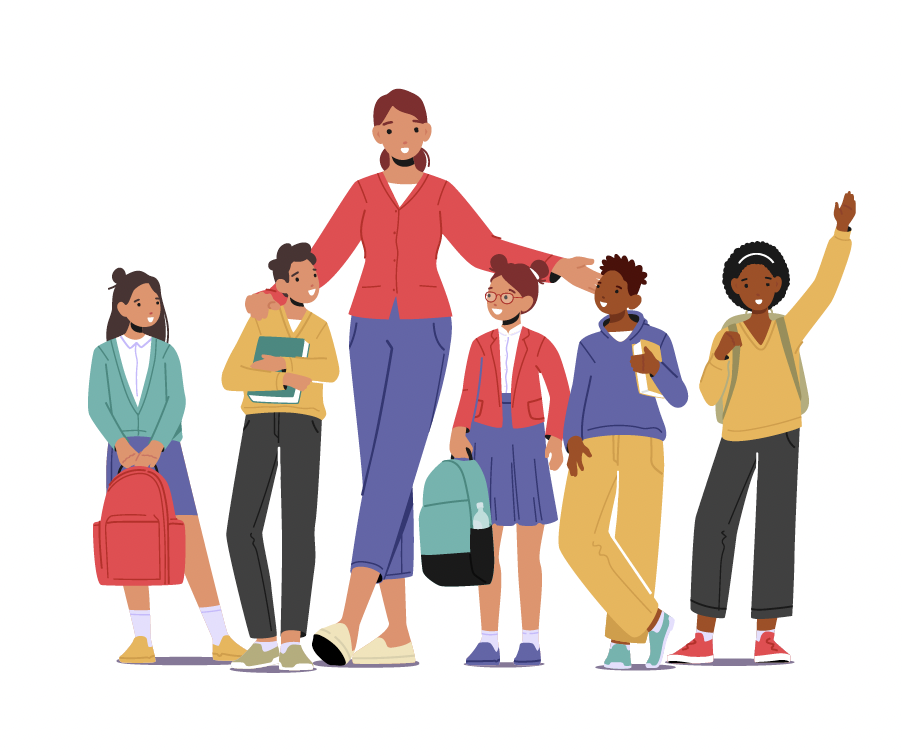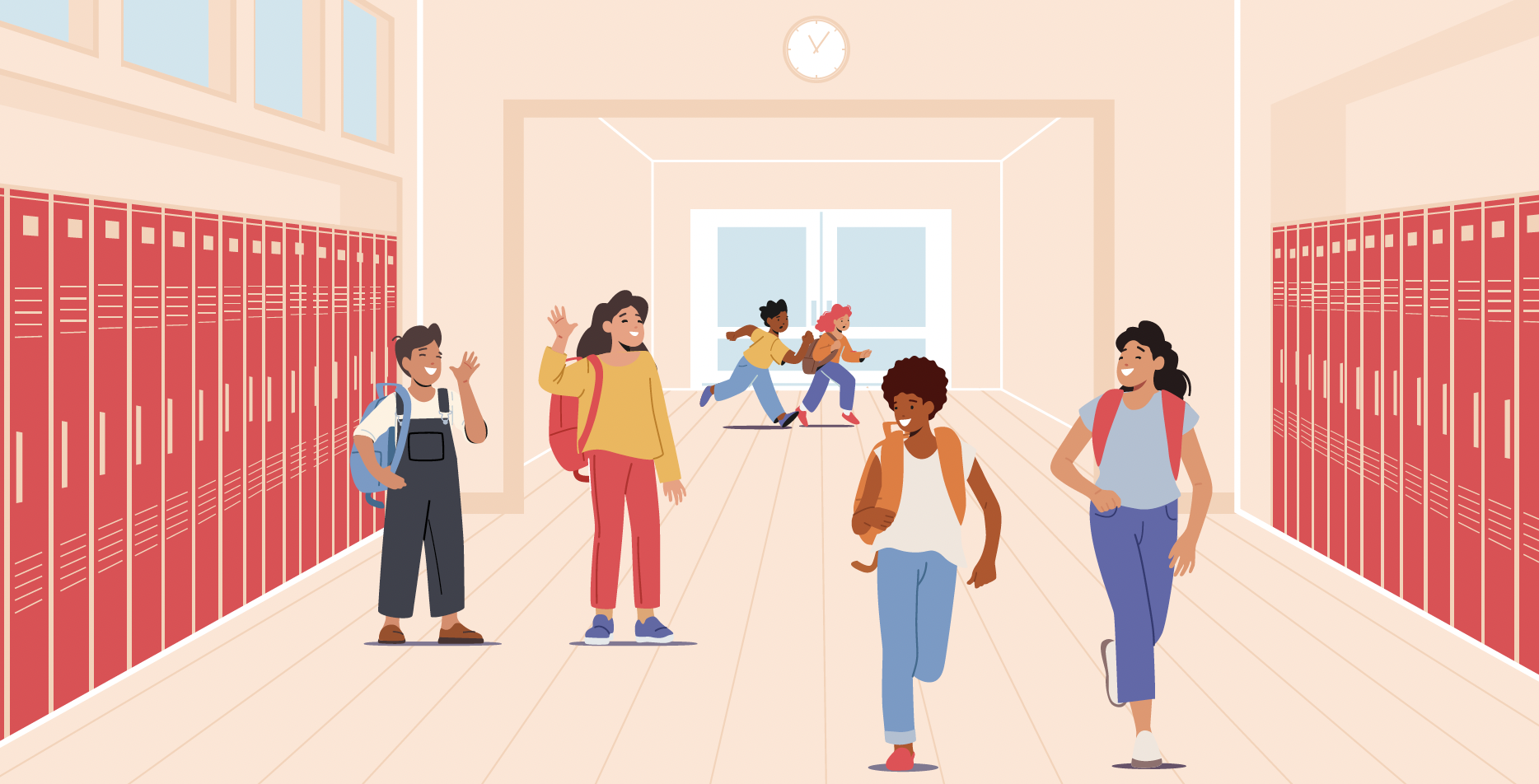Notice. Talk. Act.® at School After-School

The Notice. Talk. Act.® at School program is an evidence-based program that aims to improve mental health outcomes of students in schools across the United States. This training provides school day staff with the knowledge and skills of what behaviors to Notice that could be indicative of a mental health issue, how to Talk to students, and how to Act or refer students to additional resources. However, it is just as important for after-school staff to know the main points of this training, or even be formally trained as well, so that students continue to feel supported even after the school day concludes. As an after-school provider, you have the power to make a positive impact on your students’ future by following this framework.
What behaviors should I Notice?
You should Notice when a student demonstrates disruptive or withdrawn behaviors. These behaviors are concerning if they deviate from the student’s normal behavior and have become a pattern over time or if they are the student’s normal behavior but are extreme. Unfortunately, if these behaviors go unaddressed they could lead to a delay in care and continued mental health problems in adulthood. Currently, the average delay in receiving mental health care between symptom onset and treatment is 11 years.i You have the power to help reduce that delay by noticing when concerning behaviors arise.should be provided when appropriate.
Disruptive Behavior Examples:
- Angry outbursts
- Violence
- Refusal to follow instructions
- Attention seeking behavior
- Inappropriate communication
Withdrawn Behavior Examples:
- Isolation
- Changes in groups of friends
- Decreased personal hygiene
- Self-harming behavior
- Substance use
How should I Talk to my students?

It is important to note now that you are not there to solve the problem; instead, you are there to help. If you are unsure about how to approach a conversation, remember Open-ended questions, Affirming, Reflecting, and Summarizing (OARS). For more information about OARS and talking point examples, please refer to the OARS Brochure for Parents and Caregivers.
- Open-ended questions encourage students to elaborate rather than answering with a "yes" or "no."
- Reflecting restates the main points of what the student is communicating so they know you are listening to what they say.
- Affirming recognizes positive behaviors or characteristics about the student.
- Summarizing is explaining what happened and how the student feels so they know that you not only heard them but understood them.
How should I Act?
Mental health resources vary by school. It is important to know and follow your school’s protocol in the event that you need to refer your student for additional help. Below is a list of national support resources as well as additional space for you to list your available school or community resources:
- American Psychiatric Association: https://www.psychiatry.org/patients-families
- National Alliance on Mental Illness (NAMI): https://www.nami.org
- The Trevor Project: https://www.thetrevorproject.org/
- 988 Suicide & Crisis Lifeline: https://988lifeline.org/
- School or Community Resource: _________________________________________________
- School or Community Resource: _________________________________________________
ACEs: Adverse Childhood Experiences
What are Adverse Childhood Experiences (ACEs)?
ACEs are traumatic events that occur in childhood that impact ability to thrive in adulthood.ii These events can produce toxic stress which can affect brain development and bodily response to stress.ii They are commonly seperated into three separate categories:
- Household Challenges: Domestic violence, substance use, mental illness, divorce, incarceration, etc.
- Abuse: Emotional abuse, physical abuse, sexual abuse, etc.
- Neglect: Emotional neglect, physical neglect, etc.
Can ACEs be prevented? If so, how?
Yes, ACEs can be prevented, and preventing them can lead to better outcomes in the future (such as lower risk for depression) and lower risk for partaking in risky behaviors like smoking or drinking.ii The Centers for Disease Control and Prevention (CDC) offers several different prevention strategiesiv:
- Strengthen economic support to families by providing after-school care for working parents.
- Promote social norms that protect against violence and adversity through public education campaigns.
- Ensure a strong start for children by providing high-quality childcare.
- Teach skills such as social-emotional learning (SEL).
- Connect youth to caring adults and activities through after-school programs.
- Intervene to lessen immediate and long-term harms with treatment.
How do after-school programs play a role in improving future outcomes of students?
After-school programs connect youth to trusted and caring adults who can act as positive role models who empower students to be their best selves.iii As seen in the previous response, this can help to prevent ACEs and improve the future outcomes of students. After-school programs also provide students with activities that can strengthen their behavioral, leadership, and academic skills in the classroom and community.iii

For more information on our school based program visit apaf.org/school or contact us at [email protected].
